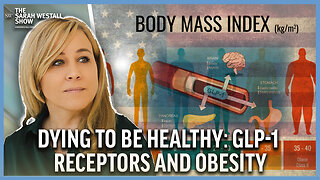Premium Only Content

What paralyzed woman
It's important to note that the emotional experiences can vary greatly depending on the individual, their personal circumstances, and their support system. Paralysis can have a significant impact on a person's life and can lead to a range of emotions, including but not limited to:
Grief and Loss: Paralysis often involves the loss of physical abilities and independence. This loss can lead to feelings of grief and mourning for the life and abilities the person had before their paralysis.
Frustration and Anger: The limitations and challenges associated with paralysis can result in frustration and anger. The inability to perform simple tasks independently or the need for constant assistance can lead to feelings of frustration and a sense of injustice.
Depression and Sadness: Paralysis can trigger feelings of sadness, hopelessness, and depression. The individual may experience a sense of loss, social isolation, and difficulties in adjusting to their new circumstances.
Anxiety and Fear: Paralysis can bring about anxiety and fear related to various aspects of life, such as the future, financial concerns, healthcare needs, and social interactions. Worries about accessibility, relationships, and being a burden on loved ones can also contribute to these feelings.
Acceptance and Adaptation: Over time, individuals with paralysis may go through a process of acceptance and adaptation. They might find ways to adjust to their new reality, develop coping mechanisms, and focus on what they can do rather than what they can't.
Resilience and Strength: Many paralyzed individuals demonstrate remarkable resilience and strength in facing the challenges presented by their condition. They may find new ways to pursue their goals, advocate for themselves and others, and develop a strong sense of self-worth and purpose.
It's essential to remember that these emotions can fluctuate over time, and not all paralyzed individuals will experience them in the same way or to the same extent. Support from loved ones, access to appropriate medical care, rehabilitation services, and psychological support can significantly influence an individual's emotional well-being and overall quality of life
-
 1:25:53
1:25:53
Kim Iversen
3 days agoStriking Back: Taking on the ADL’s Anti-Free Speech Agenda
84.2K45 -
 49:35
49:35
Donald Trump Jr.
14 hours agoA New Golden Age: Countdown to Inauguration Day | TRIGGERED Ep.202
167K181 -
 1:14:34
1:14:34
Michael Franzese
12 hours agoWhat's Behind Biden's Shocking Death Row Pardons?
74.1K44 -
 9:49
9:49
Tundra Tactical
11 hours ago $19.46 earnedThe Best Tundra Clips from 2024 Part 1.
107K8 -
 1:05:19
1:05:19
Sarah Westall
11 hours agoDying to Be Thin: Ozempic & Obesity, Shedding Massive Weight Safely Using GLP-1 Receptors, Dr. Kazer
91.3K23 -
 54:38
54:38
LFA TV
1 day agoThe Resistance Is Gone | Trumpet Daily 12.26.24 7PM EST
66.3K11 -
 58:14
58:14
theDaily302
20 hours agoThe Daily 302- Tim Ballard
64.1K10 -
 13:22
13:22
Stephen Gardner
14 hours ago🔥You'll NEVER Believe what Trump wants NOW!!
112K300 -
 54:56
54:56
Digital Social Hour
1 day ago $11.49 earnedDOGE, Deep State, Drones & Charlie Kirk | Donald Trump Jr.
63.6K5 -
 DVR
DVR
The Trish Regan Show
15 hours agoTrump‘s FCC Targets Disney CEO Bob Iger Over ABC News Alleged Misconduct
67.9K39